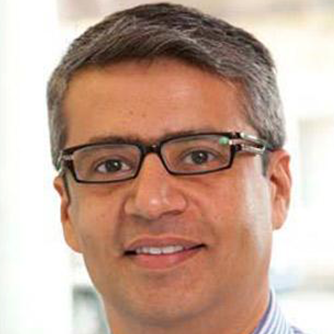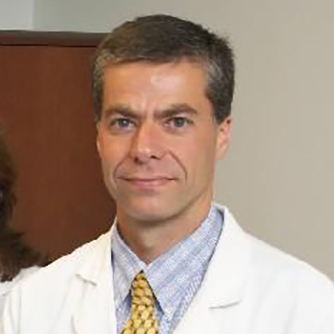Kidney Disease/Hypertension
The Division aims to provide state-of-the-art care for patients with kidney disorders; to teach nephrology to medical students, house officers, and renal fellows; and to conduct clinical and basic research on kidney function and disease.
Kidney Disease/Hypertension
The Division aims to provide state-of-the-art care for patients with kidney disorders; to teach nephrology to medical students, house officers, and renal fellows; and to conduct clinical and basic research on kidney function and disease.
Overview
The Division of Kidney Disease and Hypertension was established in 1966 and oversees all research and education in nephrology at The Warren Alpert Medical School. Its facilities include; dialysis units at the Miriam, Rhode Island and Veterans Administration Hospitals, 5 outpatient dialysis centers in the greater Providence area, two outpatient clinics in the greater Providence area, a joint medical-surgical transplant unit with contiguous office and clinic space in Rhode Island Hospital, a nephrology library and conference room, a clinical research unit, faculty and fellow offices, and modern research laboratories. The Division has three main missions: first, to provide state-of-the-art care for patients with kidney disorders; second, to teach nephrology to medical students, house officers, and renal fellows; and third, to conduct clinical and basic research on kidney function and disease.
Currently, our faculty consists of 15 full-time nephrologists, 2 pediatric nephrologists, and 22 practicing nephrologists who are integral participants in the Division’s clinical and educational activities. Two full-time transplant surgeons work closely with our group and are actively involved in our clinical, research and training programs. Full-time faculty members provide out-patient services at the Renal, Hypertension and Transplant outpatient sessions at the Rhode Island, Miriam and VA Hospitals, attend on consultation and inpatient services at the Rhode Island, Miriam, VA, Women & Infants Hospitals, and carry out many teaching activities on the University Campus, in its affiliated Hospital Centers and in the outpatient dialysis centers. Several members of the faculty direct highly successful, externally funded clinical and basic research programs that also involve students, residents, as well as nephrology and post-doctoral research fellows.
Faculty
-

Maroun Azar, MD
Assistant Professor of Medicine; Clinician Educator; Medical Director, FKC, Warwick -

George Bayliss, MD
Professor of Medicine; Medical Director for Transplantation -

Nathan Calabro-Kailukaitis, MD
Assistant Professor of Medicine; Clinician Educator -

M. Khurram Faizan, MD
Associate Professor of Pediatrics; Director, Division of Pediatric Nephrology; Clinician Educator -

Mary Gaffney, MD
Assistant Professor of Medicine -

Yingjie Guan, MD, PhD
Assistant Professor of Pathology and Laboratory Medicine (Research); Assistant Professor of Medicine (Research) -

Susie Hu, MD
Professor of Medicine; Professor of Medical Science; Director, Division of Kidney Disease & Hypertension -

Eric Kerns, MD
Assistant Professor of Medicine; Clinician Educator; Medical Director, Peritoneal Dialysis, Rhode Island Hospital Outpatient Dialysis Center -

Robin Kremsdorf, MD
Assistant Professor of Pediatrics; Division of Pediatric Nephrology; Clinician Educator -

Jonah Licht, MD
Clinical Assistant Professor of Medicine -

Matthew Lynch, MD
Assistant Professor of Medicine; Clinician Educator; Medical Director, Inpatient Dialysis Services, BrownHealth -

Edward Medeiros, DO
Clinical Assistant Professor of Medicine; Associate Program Director, Nephrology Fellowship -

Basma Merhi, MD
Assistant Professor of Medicine; Clinician Educator; Donor Director for Transplantation -

Paul Morrissey, MD
Professor of Surgery -

Adena Osband, MD
Associate Professor of Surgery; Clinician Educator; Living Donor Surgeon -

John O’Bell, MD
Associate Professor of Medicine; Clinician Educator; Associate Chief for Clinical Affairs -

Katherine Richman, MD
Assistant Professor of Medicine; Clinician Educator -

Kelley Sanzen, PharmD
Clinical Assistant Professor of Medicine; Clinical Professor of Pharmacy Practice, URI College of Pharmacy; Director of Quality Programs -

Ankur Shah, MD, MPH
Assistant Professor of Medicine; Clinician Educator; Program Director, Nephrology Fellowship -

Douglas Shemin, MD
Associate Professor of Medicine; Division Director, Kidney Disease & Hypertension -

Sandipan Shringi, MD
Assistant Professor of Medicine; Associate Program Director, Nephrology Fellowship -

Jie Tang, MD, MPH
Associate Professor of Medicine; Associate Professor of Surgery; Clinician Educator; Director of Global Health Program; Associate Chief for Research -

Kristen Tillquist, DO
Assistant Professor of Medicine; Clinician Educator -

Shougang Zhuang, MD, PhD
Professor of Medicine (Research)
Fellowship Program
Kidney Disease & Hypertension Fellowship
Fellows receive exposure to the full gamut of procedures including both native and transplant kidney biopsies, internal jugular and femoral dialysis catheters, and plasmapheresis.
Research Programs
Douglas Shemin is the director of the Division of Kidney Diseases and Hypertension. His primary clinical and research interests are renal replacement therapy and end stage kidney disease. His current research projects include novel treatments for anemia of chronic kidney disease, measurement of solute clearance in end stage renal disease, and the effect of dialysis time on outcomes in end stage kidney disease.
Shougang Zhuang serves as the director of the Renal Diseases and Hypertension Division’s laboratory research program. He is interested in the mechanisms of acute kidney injury and renal regeneration after injury, and in developing therapeutic agents that promote renal recovery after acute kidney injury (AKI) and that attenuate progression of renal fibrosis. His current projects are focused on determining the intracellular signaling events critical for renal tubular cell death and development of renal fibrosis after injury, as well as defining the role of epigenetic regulation in renal epithelial cell regeneration and renal fibrosis. His research has been supported by the NIH grants.
Maroun Azar is interested in the role of palliative care in elderly patients with chronic kidney disease. Another interest is in outcomes in geriatric patients with end stage renal disease. He is also currently involved in a collaborative study on the incidence of acute kidney injury in women with preeclampsia in relation to NSAID use.
George Bayliss’ research interests include learning whether there are ways to combine subjective and objective data to predict when someone will need to start dialysis or return to dialysis after the transplanted kidney fails and the use of immunosuppressant agents in the transplant patients with a failed kidney after return to dialysis.
Nathan Calabro-Kailukaitis is interested in peritoneal dialysis and has collaborated on a project comparing procedure burden in a subset of peritoneal and hemodialysis patients. He also plans to participate in a project looking at inflammation as it relates to peritoneal membrane solute transport. A topic of potential interest is an examination of hemodialysis related outcomes at Moi Teaching and Referral Hospital in Eldoret, Kenya.
Reginald Gohh’s research focuses on clinical interventions to treat a variety of disorders in the general nephrology population as well to improve the outcomes of kidney transplant recipients. I am involved in several clinical trials studying novel pharmacologic therapies to treat a variety disorders such as ANCA positive vasculitis, membranous GN and primary FSGS. Other clinical interests include the investigation of patient risk factors that may influence renal allograft survival and looking at ways to mitigate these risks. For instance, we are currently studying the effect of exercise following transplantation to determine whether a pattern can be discerned that impacts graft outcomes. Other endeavors include an investigator-initiated trial to determine whether delayed graft function can be influenced by novel pharmacologic interventions in the peri-operative period.
Yingjie Guan is interested in understanding of the pathogenic mechanisms of chronic kidney disease–mineral bone disorder as well as renal fibrogenesis and inflammation. The laboratory is currently focused on the role of posttranslational modifications such as protein methylation in the expression of renal proteins related to CKD-MBD regulation.
Susie Hu’s research interests include peritoneal dialysis, onconephrology and select kidney transplant-related topics. For the peritoneal dialysis research, we have examined the procedural burden between those who start dialysis with urgent start peritoneal dialysis versus urgent start hemodialysis. We also explore which factors are associated with preservation of residual renal function in peritoneal dialysis. We would also like to explore how the peritoneal membrane changes with time on dialysis and which factors impact outcomes. We are also participating in the peritoneal dialysis registry examining peritoneal dialysis catheter insertion method related outcomes. Topics of interest in transplant include– donor kidney volume and donor GFR outcomes. We hope to also explore how kidney volume or size may impact patients with renal cell carcinoma who undergo nephrectomy.
Eric Kerns’ research interests include acute kidney injury in patients with cirrhosis, peritoneal dialysis (specifically urgent-start peritoneal dialysis), and Mesoamerican nephropathy and CKD in immigrant populations.
Matthew Lynch’s research interests include treatment of glomerular disease, changes in the peritoneal membrane over time in patients on peritoneal dialysis, and treatment of acute kidney injury in critically ill patients. He is currently the site PI on a large study examining a novel medication in the treatment of lupus nephritis and overseeing the construction of our local glomerulonephritis registry. He is collaborating with Drs. Hu, Shah, and Calabro on the peritoneal dialysis registry and peritoneal membrane changes.
Basma Merhi is a transplant nephrologist who has led a number of projects arising from the FAVORIT study, the largest clinical trial ever funded by the NIH in renal disease, which was run by our division’s faculty. These projects have included calcium and phosphate metabolism in renal transplant recipients, and cardiovascular disease in renal transplant recipients.
John O’Bell is interested in the use of novel educational tools to improve learning for fellows, residents and students. He is also involved in research about risk factors for recurrent kidney stones. He oversees the CKD initiative, which is a collaborative project between primary care and nephrology to improve efficiency and quality of care in patients with advanced stages of chronic kidney disease.
Kelley Sanzen’s research interests include hypertension management, medication adherence, decreasing polypharmacy, quality improvement, health literacy, and evolving interprofessional models of care. She is currently collaborating with Dr. Shah to evaluate the impact of implementing a pharmacist-managed erythropoietin stimulating agent stewardship project in non-dialysis Chronic Kidney Disease patients in 2016. In addition, she is working on a grant funded project focused on optimizing medication management in dialysis patients by understanding patient perceptions about medications through pharmacist semi-structured interviews and comprehensive medication reviews. Other quality improvement activities include interprofessional management of mineral bone disease in dialysis patients, evaluating nephrologist prescribing patterns of SGLT2 inhibitors in patients with preserved renal function and CKD, and implementation of remote blood pressure monitoring using telehealth during the COVID-19 pandemic.
Ankur Shah’s research interests include peritoneal dialysis, home hemodialysis, and quality improvement. He is currently collaborating with Dr. Hu on projects looking at how the peritoneal membrane changes with time on dialysis and which factors impact outcomes as well participating a registry examining peritoneal dialysis catheter insertion method related outcomes. His second interest is in the efficacy of quality improvement activities, we are currently reviewing the durable outcomes of an erythropoietin stewardship protocol implemented in 2016.
Jie Tang is actively conducting epidemiological and prospective trials in kidney stone disease. The projects include studying the effects of dietary factors in various outcomes among prevalent as well as incident kidney stone formers, and the role of vitamin D, fibroblast growth factor 23 and klotho in the pathogenesis of kidney stone disease. Dr. Tang also leads a clinical study examining the cardiovascular biomarkers among CKD patients with obstructive sleep apnea.